Regent resigns leadership position after asking if U campus is “too diverse”
MINNEAPOLIS (AP) - A former Minnesota House speaker is stepping down as vice chairman of the University of Minnesota Board of Regents following increased criticism over his question about whether the Morris campus is “too diverse.”
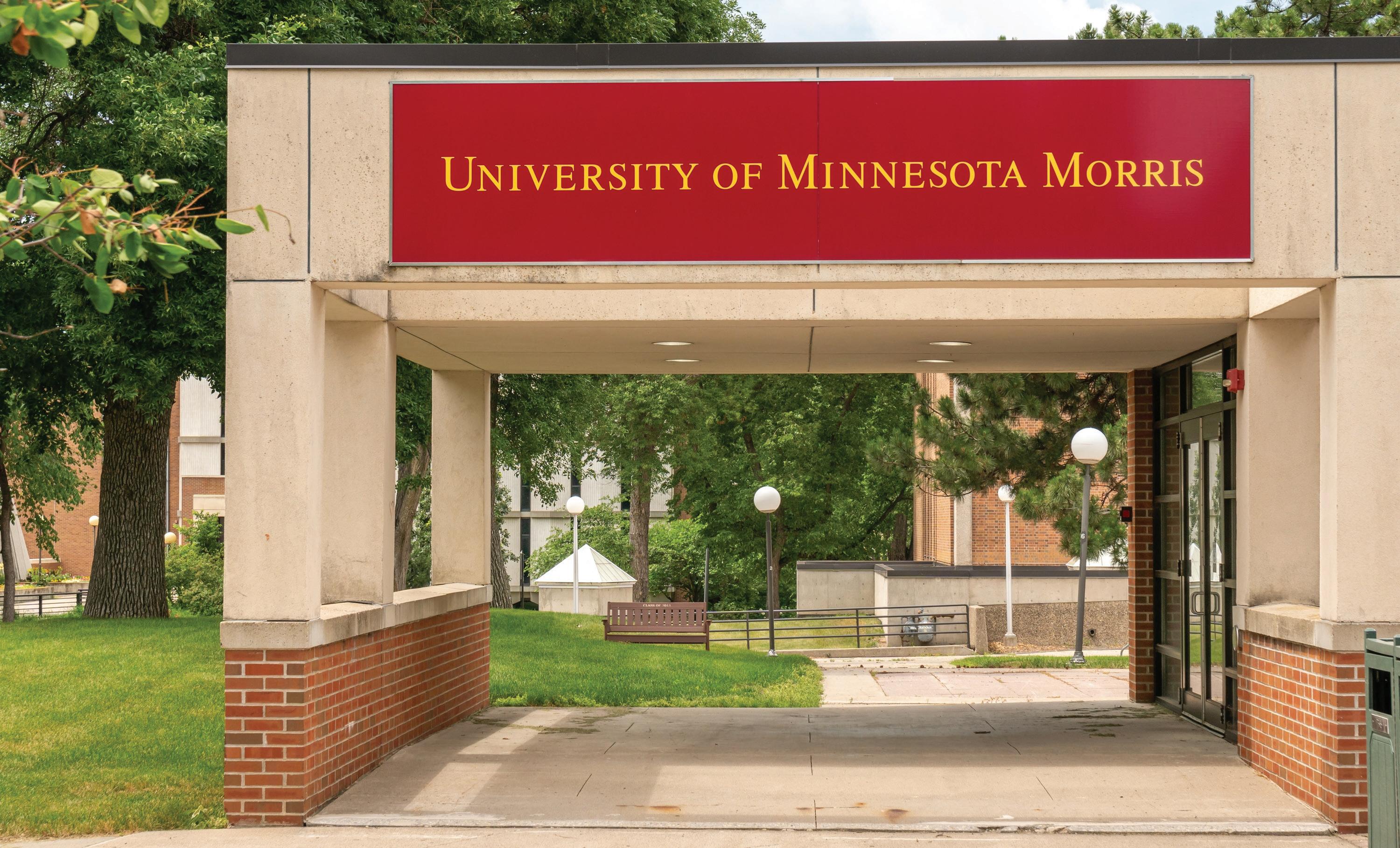
Steve Sviggum has resigned his leadership position, but will remain on the board until his term expires when the state Legislature holds its regents election during the 2023 session, according to a statement from the University of Minnesota.
Sviggum, 71, faced mounting pressure over comments he made nearly two weeks ago during a regents meeting. In talking about declining enrollment at the Morris campus, Sviggum asked acting Chancellor Janet Schrunk Ericksen whether the campus was “too diverse,” from a marketing standpoint.
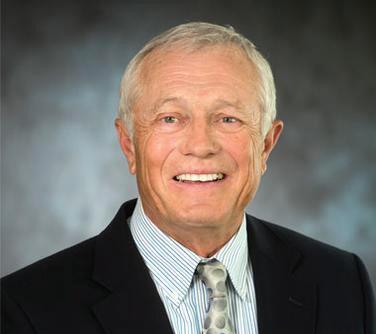
Currently, Morris has 1,068 students enrolled. Of those, 41% are people of color.
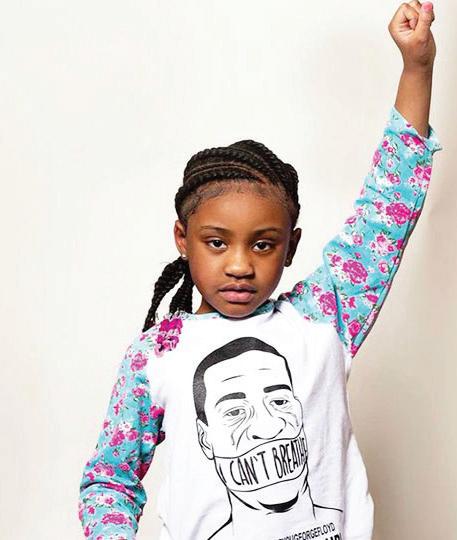
At a public meeting of the board that oversees the university system two weeks ago, Sviggum, a former Minnesota House speaker, asked acting Morris Chancellor Janet Schrunk Ericksen whether it was “possible at all from a marketing standpoint” that the campus had become “too diverse.”
“I’ve received a couple letters, two actually, from friends whose children are not going to go to Morris because it is too diverse,”
Sviggum said at the meeting. “They just didn’t feel comfortable there.”
According to KSTP-TV, which first reported the exchange, Schrunk Ericksen responded “on behalf of minority students,” saying, “I think that they would be shocked that anyone would think our campus was too diverse. ... They certainly feel, at times, isolated where they are located. So, the answer is from that perspective, no.”
Sviggum said that after meeting with board Chairman Ken Powell over the weekend, he came to the “realization” that he should resign as vice chairman immediately, the Star Tribune reported.
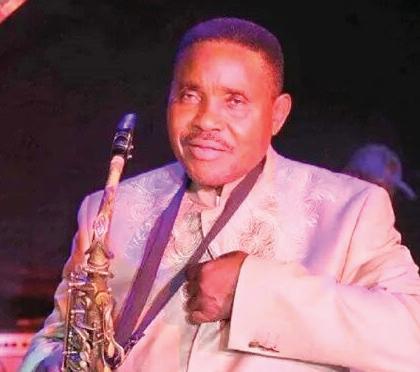

“I owe that position to my colleagues who have shown disapproval in my actions,” he wrote in a letter to Powell. “I do so humbly and thoughtfully, with knowledge that the success of the University of Minnesota is the most important focus and is much more important than any one person or position.”
Regents James Farnsworth and Mike Kenyanya said this was the right move for Sviggum. Both said they’d recently been in discussions with others about Sviggum’s future as a leader on the board.

The Morris Campus Student Association also called for Sviggum to step down as vice chairman.

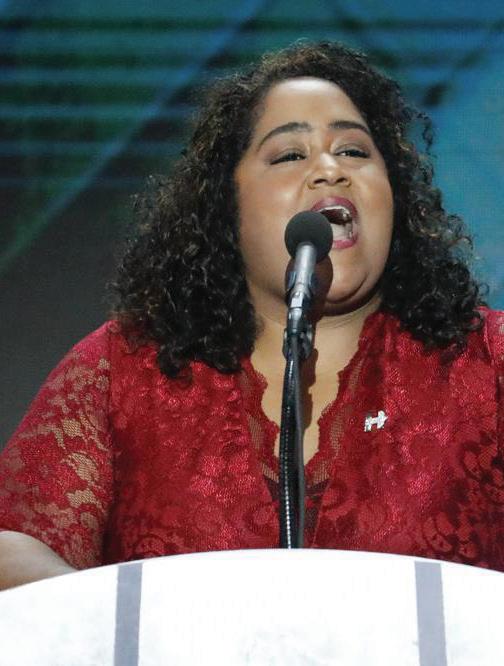
OCT.31-NOV. 6, 2022 Issue # 546 www.mshale.com INSIDE THE AFRICAN COMMUNITY NEWSPAPER Slavery on the ballot for voters in 5 US states P.4 P.9
P.8 George Floyd’s daughter Gianna to sue Kanye West
P.10 Congolese Rhumba icon Verckys is dead
CeCe Winans wins Artist of the Year at Dove Awards
Student Center entrance on the campus of the University of Minnesota Morris campus on July 9, 2022. Inset is Regent Steve Sviggum in an official University of Minnesota photo.
Photo: Ken Wolter/Shutterstock
Celebrating Houston White
The Houston White for Target collection is an exciting collaboration that shows the importance and possibilities of working together to move culture forward. This collection is distinct, stylish, and inclusive to all. Houston believes your style is a celebration of who you are. When we celebrate passion and style from unique perspectives, we cultivate stronger communities.
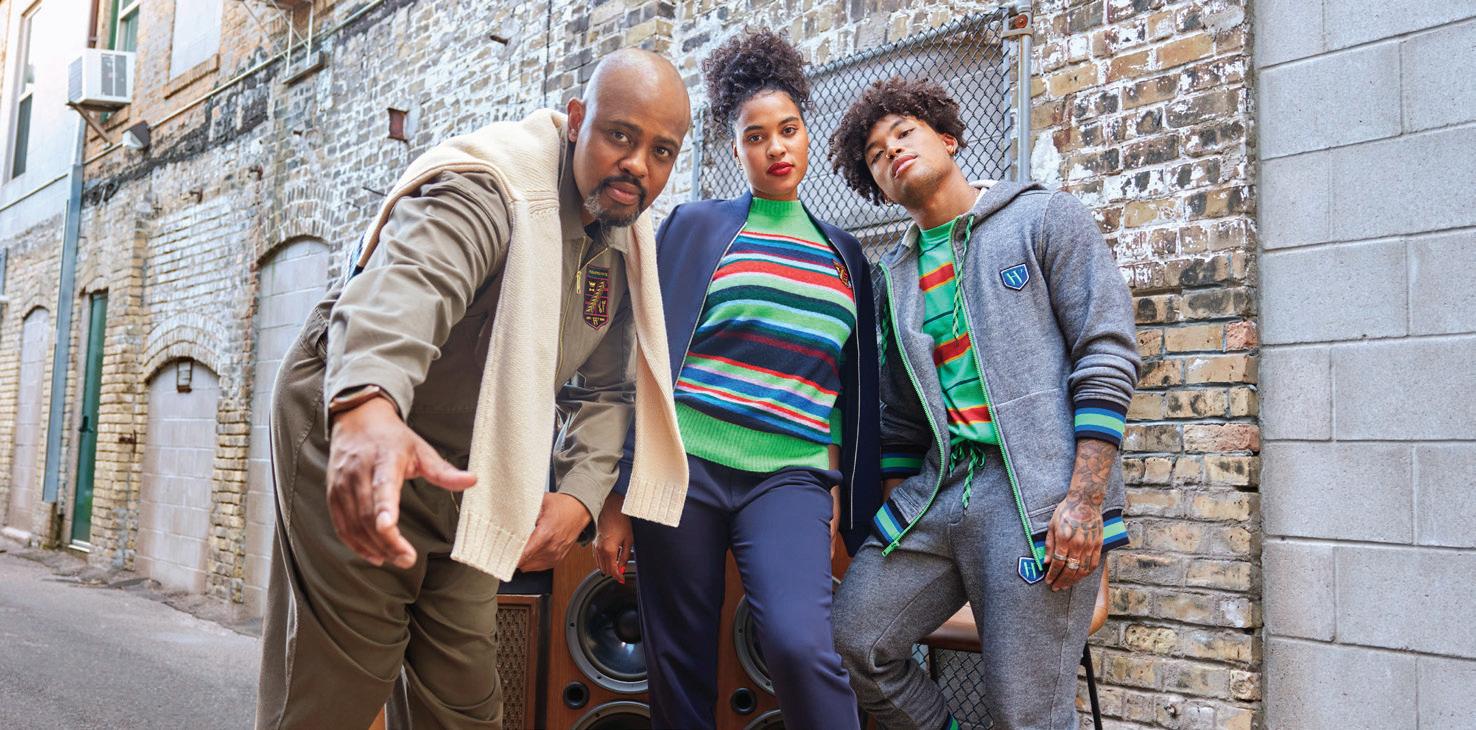
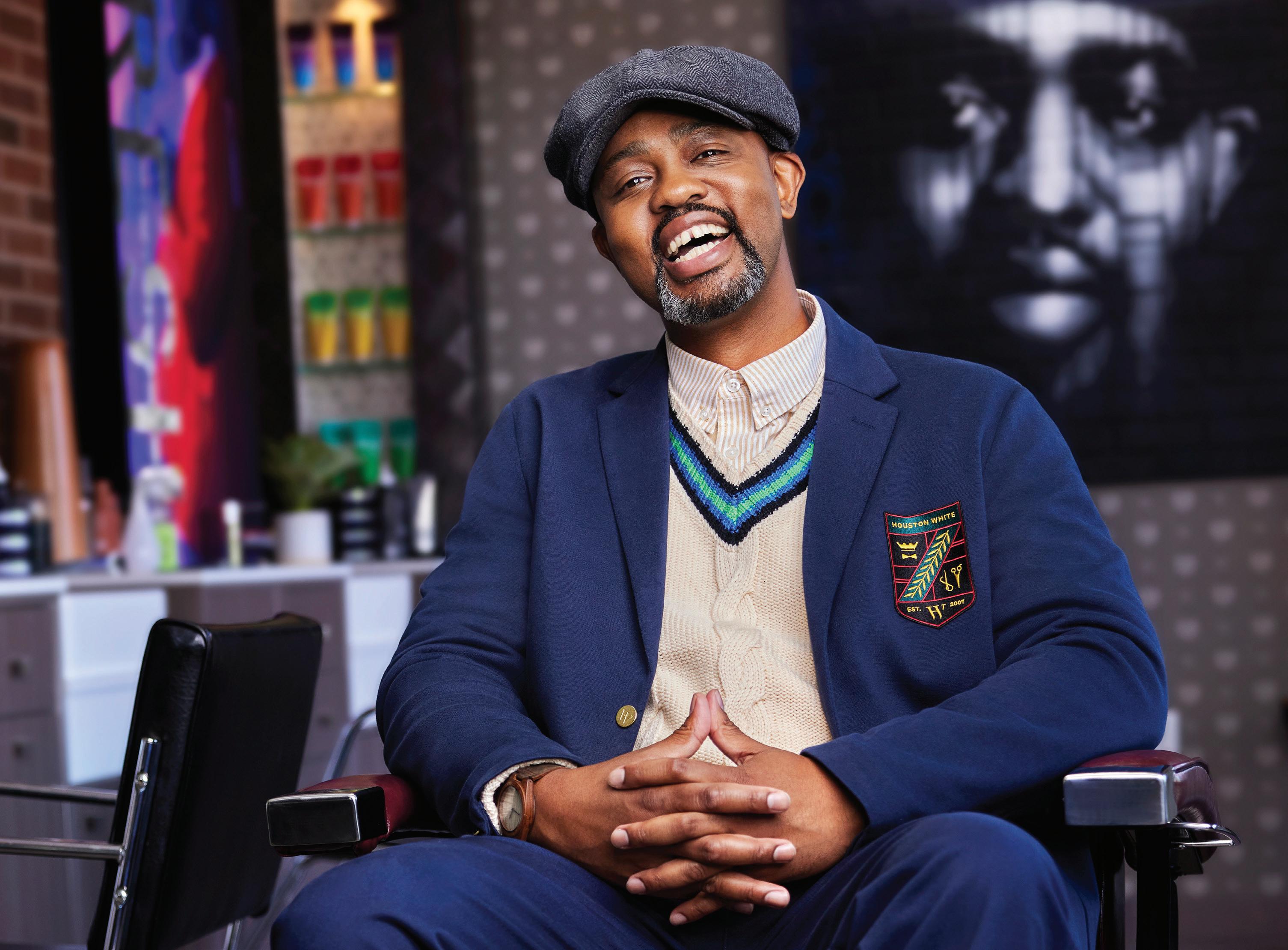
Investing in ourselves, makes us all shine.


- The African Community Newspaper www.mshale.com Oct. 31-Nov. 6, 2022 Issue 546 Mshale 2
get inspired by Houston White’s story
@2022 Target Brands, Inc.
Guest
Commentary by Congressman Jim Clyburn
Joe Biden’s great recovery
One definition of recovery is, “a return to a normal state of health, mind, or strength.” Another is, “the action or process of regaining possession or control of something stolen or lost.” I can’t think of any more appropriate descriptions of the first 20 months of President Joe Biden’s Administration. History records President Franklin Delano Roosevelt as the creator of the New Deal, President Harry S. Truman as the initiator of the Fair Deal, and President Lyndon Johnson as the mastermind of the Great Society. I believe historians will one day recognize President Joseph R. Biden as the engineer of the Great Recovery.

When President Biden took office on January 20, 2021, the country was in the grip of a global pandemic that was killing more than 3,000 people per day. Businesses were shuttering, schools were closing, and the nation’s unemployment rate was 6.4 percent. The American people were losing faith in their government and its elected officials.
The bombastic style of the previous Administration was wearing thin on the American public and their lack of substance was visiting hardships on the American people, their families, and their communities. Our nation’s long pursuit of “a more perfect Union” seemed to be coming to an unceremonious end. In short, our Democracy was at peril.
President Biden and Congressional Democrats are engineering a Great Recovery of, for and by the American People. From day one, we have focused on shoring up the shaky foundation left by the previous Administration. On March 11, 2021, less than two months after he took office, President Biden signed the American Rescue Plan (ARP) putting in place the first pillar of the foundation upon which he would jumpstart a great recovery. The ARP put money in people’s pockets, got children back in school and lifted nearly half of those children living in poverty out of poverty. We reopened businesses, kept workers on their jobs, and stemmed the deadly rampage of COVID-19 by expanding testing and access to vaccines.
The second pillar of Biden’s foundation came on November 15, 2021, when he signed the Infrastructure Investment and Jobs Act. Joe Biden’s historic investment in our crumbling and outdated infrastructure, is putting people to work repairing roads and bridges, expanding high-speed broadband, cleaning our drinking water, and creating a resilient electric grid. It is replacing lead pipes, making a down payment on clean energy transmission, and erecting charging stations for electric vehicles. These infrastructure investments are creating jobs and strengthening critical links in our supply chain.
The third pillar of President Biden’s “Great Recovery” platform, the CHIPS and Science Act, was signed into law on August 9. It restores America’s standing as a global science and technology leader by providing the resources and tools to make more products like
semiconductor chips here at home. It will create better-paying jobs, build a more diverse workforce, and bolster our supply chains.
The fourth pillar of the Biden platform, the Inflation Reduction Act (IRA), passed the Congress with every Democrat voting for it, and every Republican voting against it. This new law is making historical investments in climate change and health care. Medicare recipients will see insulin capped at $35 per month, their out-of-pocket prescription drugs capped at $2,000 annually, allows Medicare costs to be negotiated, and extends Affordable Care Act subsidies to 13 million Americans.
To further secure and stabilize his platform, President Biden and Democrats constructed some additional, well-placed pillars, the PACT Act, the Safer Communities Act, and student loan debt relief. The PACT Act expands healthcare for veterans exposed to toxic burn pits and Agent Orange. The Safer Communities Act is the first significant gun safety law enacted in 30 years. It invests in community-based violence prevention initiatives, closes the “boyfriend loophole,” creates a new criminal offense for straw purchases and trafficking, and requires enhanced background checks for gun purchasers under the age of 21.
President Biden recently announced up to $10,000 in student loan debt relief for those earning less than $125,000 and reduced future monthly payments for borrowers from 10 percent to 5 percent of their discretionary income. He also announced up to $20,000 in debt relief for PELL grant recipients. In addition, the Biden Administration reworked the Public Service Loan Forgiveness program for public servants who are eligible and those who were among the 99 percent of loan applicants who were denied forgiveness under the previous administration. He extended the deadline for applicants to October 31, 2022. In the last 10 months, over 175,000 borrowers have received over $10 billion in debt relief.
President Biden and Democrats are putting people above politics. Throughout my travels, I proudly proclaim that thanks to President Biden, and a Democratic Congress, America is emerging from a very dark time in our history. President Biden is providing the strong, steady leadership needed to build a solid foundation upon which to launch a Great Recovery.
James E. Clyburn is the Majority Whip and the third-ranking Democrat in the United States House of Representatives. He wrote this for the National Newspaper Publishers Association (NNPA), a trade association of the more than 200 Black -owned community newspapers in the United States.
- The African Community Newspaper www.mshale.com Oct. 31-Nov. 6, 2022 Issue 546 Mshale 3
Join the Mshale Text Club: Text AFRICA to 24587 or follow us onTwitter.com/Mshale Community News, updated daily on Mshale. com
© 1995-2022 Mshale Communications, Inc. Mshale – The African Community Newspaper Editorial & Corporate Office: 2 E Franklin Ave., Suite 1 Minneapolis, MN 55404 Mailing Address: P.O.BOX 80071, Minneapolis, MN 55408 Tel: 612-454-5648 Email: mshale@mshale.com www.mshale.com President & Publisher: Tom Gitaa Contributing Editor: Edwin Okong’o Staff Writers: Kari Mugo, Bethel Gessesse, Cynthia Simba, Panashe Matemba-Mutasa Contributing Writers: Susan Budig Design & Layout: Staff Photographers: Richard Ooga, Bethel Gessesse, Jasmine Webber Distribution: Bluebird Mshale is published weekly on Monday. It is available every Monday for free at most African stores , African restaurants and metro area county libraries. Mailed subscriptions are $60 per year. Memberships: Minnesota Multicultural Media Consortium (MMMC) , Pan African Business Alliance (PABA). The editor welcomes letters, opinion pieces and commentary on issues of interest to the African community in North America. Contributions must be typed and will be edited for clarity and space. Submissions can be mailed or submitted online at www.mshale.com
Slavery is on the ballot for voters in 5 US states
By Kimberlee Kruesi Associated Press
NASHVILLE, Tenn. (AP) — More than 150 years after slaves were freed in the U.S., voters in five states will soon decide whether to close loopholes that led to the proliferation of a different form of slavery — forced labor by people convicted of certain crimes.
None of the proposals would force
feels so clear,” said Bianca Tylek, executive director of Worth Rises, a criminal justice advocacy group pushing to remove the amendment’s convict labor clause.
Nearly 20 states have constitutions that include language permitting slavery and involuntary servitude as criminal punishments. In 2018, Colorado was the first to remove the language from its founding frameworks by ballot measure, followed by Nebraska and Utah two years later.
tweaked. Akbari first proposed changes in 2019; the GOP-dominant General Assembly then had to pass the changes by a majority vote in one two-year legislative period and then pass it again with at least two-thirds approval in the next. The amendment could then go on the ballot in the year of the next gubernatorial election.
Akbari also had to work with the state Department of Correction to ensure that inmate labor wouldn’t be prohibited under her proposal.
The proposed language going before Tennessean voters more clearly distinguishes between the two: “Slavery and involuntary servitude are forever prohibited. Nothing in this section shall prohibit an inmate from working when the inmate has been duly convicted of a crime.”
“We understand that those who are incarcerated cannot be forced to work without pay, but we should not create a situation where they won’t be able to work at all,” Akbari said.
Vermont often boasts of being the first state in the nation to ban slavery in 1777, but its constitution still allows involuntary servitude in a handful of circumstances. Its proposed change would replace the current exception clause with language saying ”slavery and indentured servitude in any form are prohibited.”
Oregon’s proposed change repeals its exception clause while adding language allowing a court or probation or parole agency to order alternatives to incarceration as part of sentencing.
Louisiana is the only state so far to have its proposed amendment draw organized opposition, over concerns that the replacement language may make matters worse. Even one of its original sponsors has second thoughts — Democratic Rep. Edmond Jordan told The Times-Picayune/ The New Orleans Advocate last week that he’s urging voters to reject it.
The nonprofit Council for a Better Louisiana warned that the wording could technically permit slavery again, as well as continue involuntary servitude.
immediate changes inside the states’ prisons, though they could lead to legal challenges related to how they use prison labor, a lasting imprint of slavery’s legacy on the entire United States.
The effort is part of a national push to amend the 13th Amendment to the U.S. Constitution that banned enslavement or involuntary servitude except as a form of criminal punishment. That exception has long permitted the exploitation of labor by convicted felons.
“The idea that you could ever finish the sentence ‘slavery’s okay when ... ’ has to rip out your soul, and I think it’s what makes this a fight that ignores political lines and brings us together, because it
This November, versions of the question go before voters in Alabama, Louisiana, Oregon, Tennessee and Vermont.
Sen. Raumesh Akbari, a Democrat from Memphis, was shocked when a fellow lawmaker told her about the slavery exception in the Tennessee Constitution and immediately began working to replace the language.
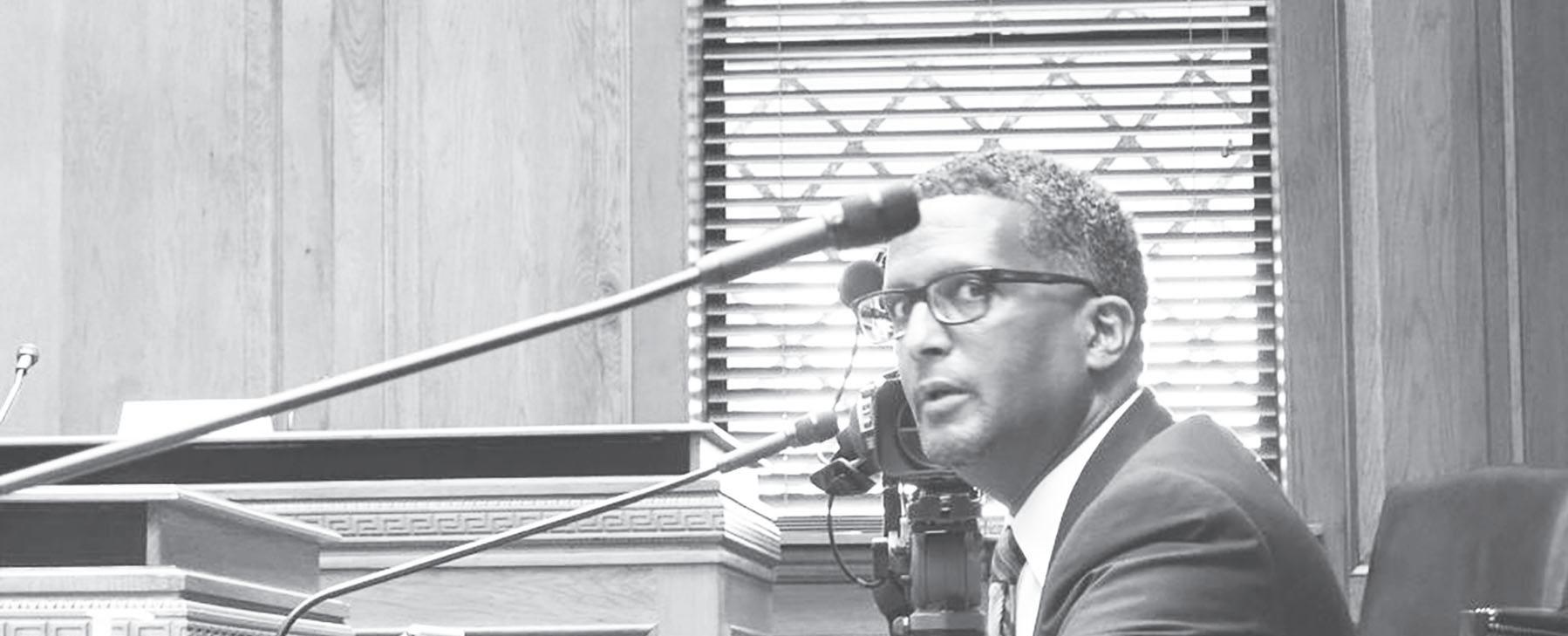
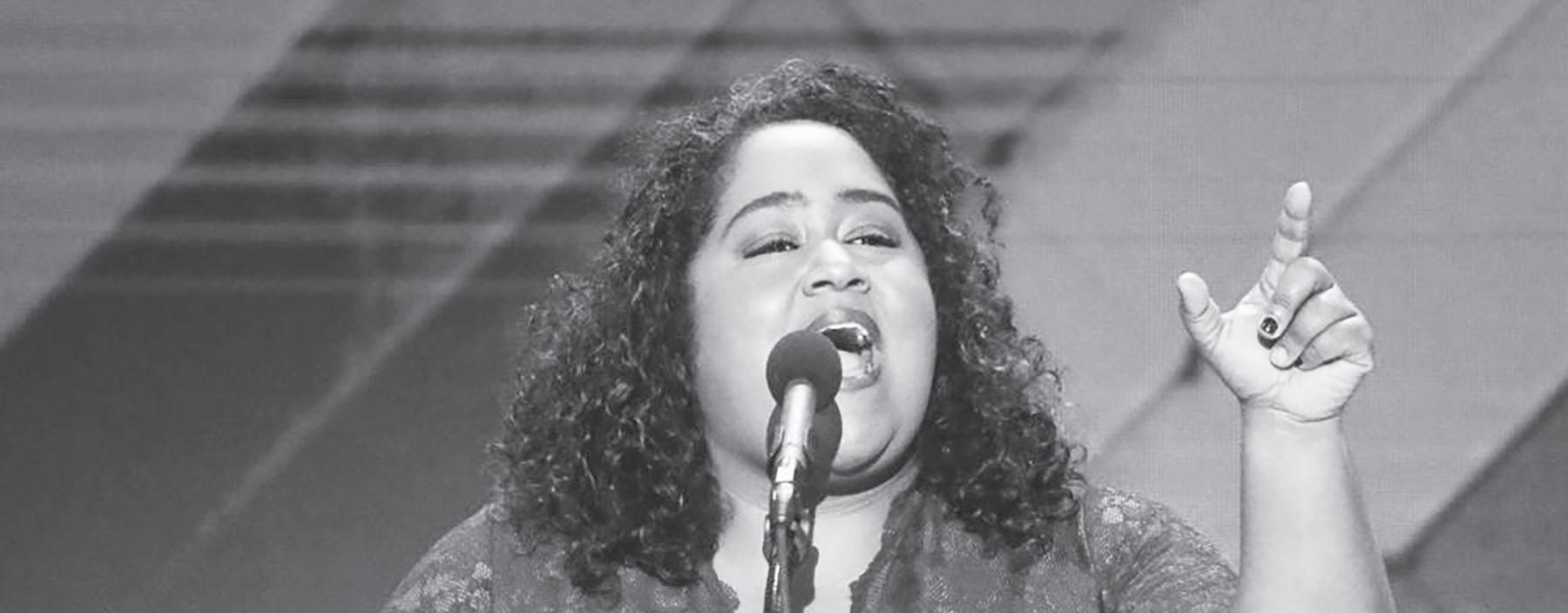
“When I found out that this exception existed, I thought, ‘We have got to fix this and we’ve got to fix this right away,’” she said. “Our constitution should reflect the values and the beliefs of our state.”
Constitutions require lengthy and technically tricky steps before they can be
Similar concerns over the financial impact of prison labor led California’s Democratic-led Legislature to reject an amendment eliminating indentured servitude as a possible punishment for crime after Gov. Gavin Newsom’s administration predicted it could require the state to pay billions of dollars at minimum wage to prison inmates.
Scrutiny over prison labor has existed for decades, but the 13th Amendment’s loophole in particular encouraged former Confederate states after the Civil War to devise new ways to maintain the dynamics of slavery. They used restrictive measures, known as the “Black codes” because they nearly always targeted Black people, to criminalize benign interactions such as talking too loudly or not yielding on the sidewalk. Those targeted would end up in custody for minor actions, effectively enslaving them again.
Fast-forward to today: Many incarcerated workers make pennies on the dollar, which isn’t expected to change if the proposals succeed. Inmates who refuse to work may be denied phone calls or visits with family, punished with solitary confinement and even be denied parole.
Alabama is asking voters to delete all racist language from its constitution and to remove and replace a section on convict labor that’s similar to what Tennessee has had in its constitution.
Louisiana’s Constitution now says: “Slavery and involuntary servitude are prohibited, except in the latter case as punishment for a crime.” The amendment would change that to: “Slavery and involuntary servitude are prohibited, (but this) does not apply to the otherwise lawful administration of criminal justice.”
“This amendment is an example of why it is so important to get the language right when presenting constitutional amendments to voters,” the nonprofit group said in a statement urging voters to choose “No” and lawmakers to try again, pointing to Tennessee’s ballot language as a possible template.
Supporters of the amendment say such criticisms are part of a campaign to keep exception clauses in place.
“If this doesn’t pass, it will be used as a weapon against us,” said Max Parthas, state operations director for the Abolish Slavery National Network.

The question stands as a reminder of how slavery continues to bedevil Americans, and Parthas says that’s reason enough to vote yes.
“We’ve never seen a single day in the United States where slavery was not legal,” he said. “We want to see what that looks like and I think that’s worth it.”
- The African Community Newspaper www.mshale.com Oct. 31-Nov. 6, 2022 Issue 546 Mshale 4
State Rep. Raumesh Akbari, D-Tenn., speaks during the final day of the Democratic National Convention in Philadelphia, July 28, 2016. Voters in five states will soon decide whether to end loopholes that led to forced labor for those convicted of some crimes. None of the proposals would force changes, though they could lead to legal challenges related to how states use prison labor.
Photo: J. Scott Applewhite/AP File
In this June 17, 2020, file photo, Rep. Edmond Jordan, D-Baton Rouge, speaks in Baton Rouge, La. Voters in five states will soon decide whether to end loopholes that led to forced labor for those convicted of some crimes. None of the proposals would force changes, though they could lead to legal challenges related to how states use prison labor.
Photo: Melinda Deslatte/AP File
New tournament aims to get more Black people playing golf
By Panashe Matemba-Mutasa Mshale
Collins Oppong thinks taking up golf could improve the economic and social wellbeing of the African community. The Ghanaian-born podcast host and media development consultant, hosted the inaugural Beyond End of Season Golf Invitational on Saturday at the Crystal Lake Golf Club in Lakeville, Minnesota. Oppong established the tournament to fulfill his vision of seeing Africans connect over golf, a sport that has not always welcomed them in the past.
“What draws me to golf is the wonderful opportunity to experience nature, exercise, network with diverse people, and create fun memories for everyone,” Oppong said.

Golf hasn’t always been open to Black people in the United States. Until 1961, the Professional Golfers’ Association (PGA) held a “whites only” policy. Although there are now more options to practice golf more cheaply, there are still private clubs that charge initiation fees upward of $50,000, which some see as a continuation of the sport’s segregationist history. The golfers at Oppong’s event seem to think that there are affordable ways Black people can introduce their children to golf.
Around 90% of Fortune 500 CEOs played golf, and 80% of business executives said that golf facilitated deeper professional relationships, according to a study published by Forbes. Black people only make up 9.5% of professional golfers, according to data from the career research firm, Zippia. Oppong said his goal was to close the gap by connecting Africans to the golf world.“Africans getting into golf is a great way to connect the African diaspora and grant us the opportunity to network in a way that is both relaxing and different from what we are accustomed to,” Oppong said.

ressed in professional golfing gear from head to toe, Justice Sikakane, eyed the final hole from multiple angles before putting his last shot. He has been golfing since high school and credited Tiger Woods for inspiring him to start playing. Sikakane, who is an IT professional, expressed gratitude for the plethora of networking opportunities the sport has brought him over the years and said that closing the racial gap in golf could create new avenues of professional advancement for Black people.
“A lot of the times when I get invited to golf outings for work, I end up meeting really interesting people in my field,” Sikakane said.
The tournament’s Best Gross Score winner George Mburu, ended his 18-hole journey with a celebratory fist bump. To him, sports are the great equalizer, diminishing the weight of skin color by providing every player with the same set of rules. He said it was an old myth
that golf excluded for people of color, and that free resources to learn golf and financially accessible clothing options are available.
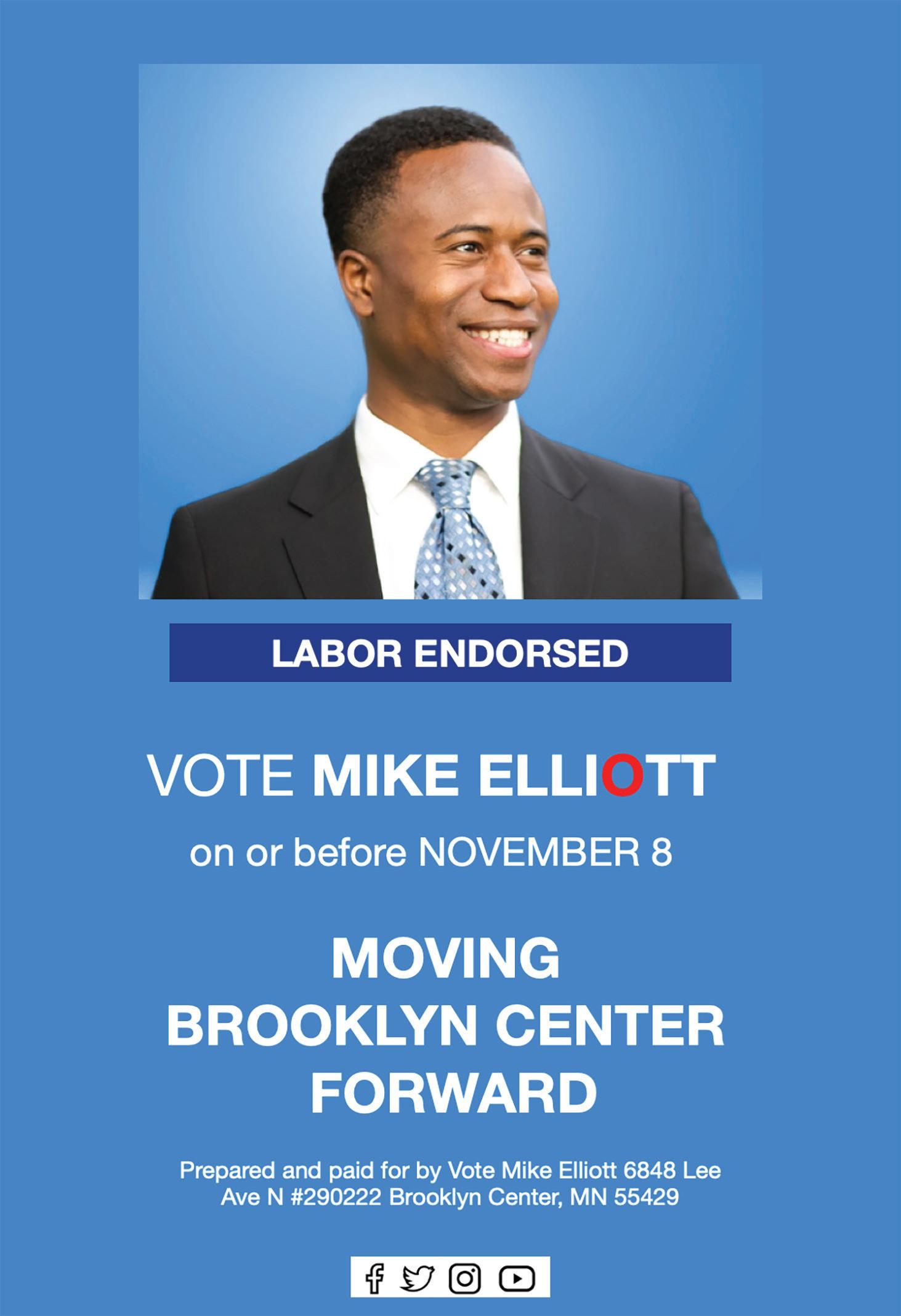
“This sport can bridge the haves and the
See Golf on Pg. 6
- The African Community Newspaper www.mshale.com Oct. 31-Nov. 6, 2022 Issue 546 Mshale 5
TRAVELING INTERNATIONALLY? Malaria can be just a plane ride away. Medications, repellent, bed nets, and more can protect you from malaria and other diseases spread by mosquitoes. Visit your doctor or travel clinic as soon as you know you are traveling. health.mn.gov/travel Image may not depict current travel requirements.
Collins Oppong, thirds from left, host of the inaugural Beyond End of Season Golf Invitational poses with other golfers at Crystal Lake Golf Club in Lakeville, Minnesota where the invitational was held. The tournament’s Best Gross Score winner, George Mburu, is on the right.
Photo: Panashe Matemba-Mutasa/Mshale
have-nots,” Mburu said. “You don’t need expensive gear either; you just need to show up and be willing to potentially network. I learned golf through YouTube.”
According to a collaborative study conducted by the University of Southampton, England, and the University of Southern California, golfers may be more likely to live well into old age than their sedentary elderly people. For senior citizens, more time out on the course was linked to increased strength, improved balance and coordination, and even mental health benefits from “seeing more green.” In addition, golf demands less physical exertion than other sports,
making it an ideal choice for many in the latter half of their lives.
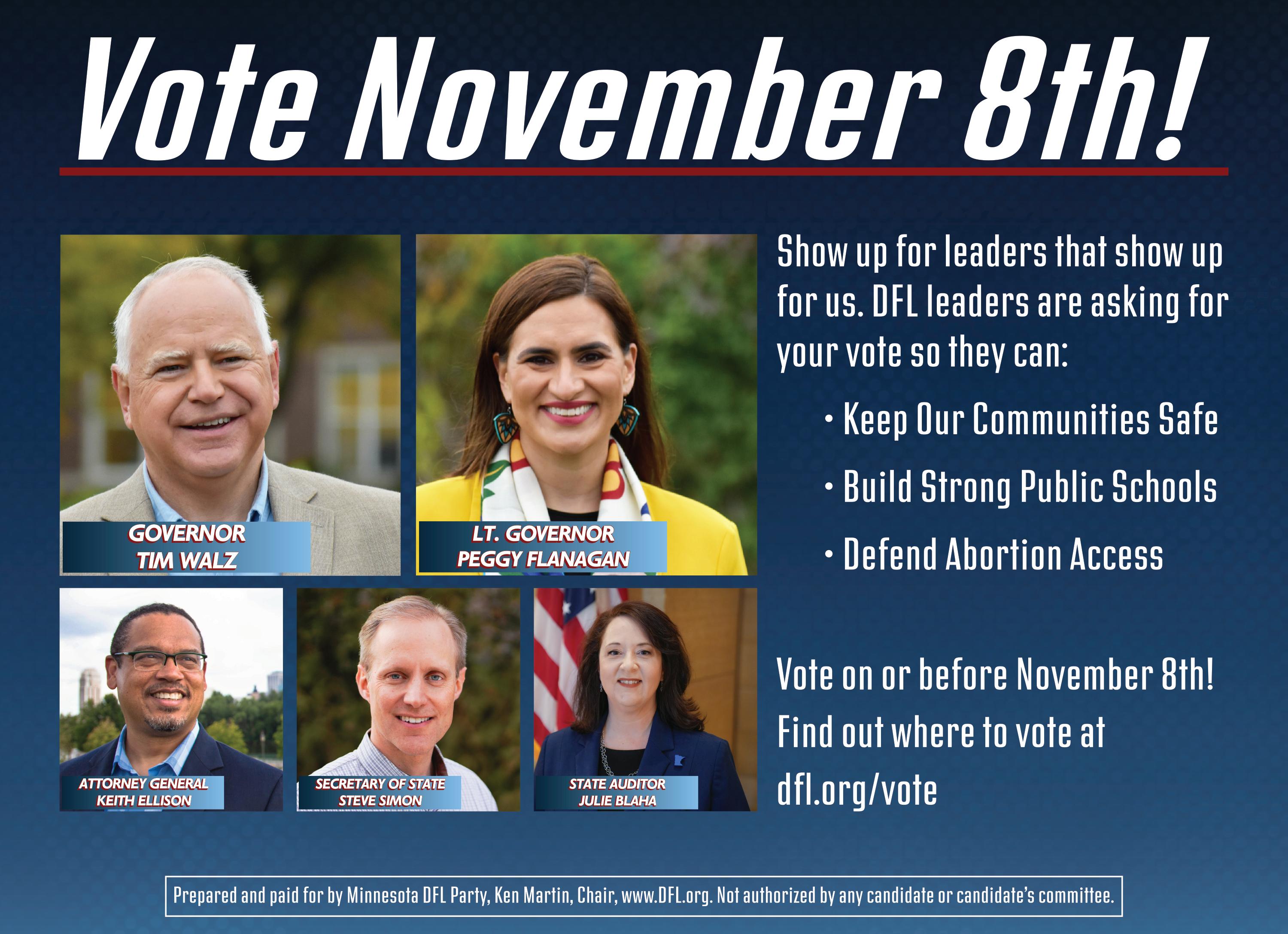
Eagan, Minnesota resident Kofi Hinson started packing his clubs as the sun was beginning to set. As he waited for his friends to tally their final scores, Hinson explained why he thought golf is “a game of a lifetime.”


“My kids got me my first golf set when I turned 60 and now I play very frequently, so it’s never too late to start reaping those health benefits,” Hinson said.
Hinson acknowledged that there were racial barriers to the sport, but not the ones that were there in the past. Since segregation is not keeping Black people physically off the course anymore, Hinson said there is a chance for Black people to begin introducing the game to their children. He said that Black youth can grow to love it if it becomes a part of their culture, much like basketball.
“The issue nowadays is not access,” Hinson said, “it’s exposure. You have white kids who pick up an interest in the sport because their parents and grandparents did it, and so I think if we want our kids to pick up golf we have to first encourage it ourselves.”
But golf doesn’t just offer physical and professional benefits. Event guests seemed to agree that it builds character as well. As he stood mere meters away from the hole, avid local golfer Marcus Davis adjusted his form in preparation for what he hoped would be his last swing. When the ball scraped the edge of the hole and continued to roll, he let
out a sigh. Patience, he said, is one of the virtues one gains when they choose to pursue golf.
“Golf is an allegory for life,” he said. “You can have a plan to make that holein-one shot, but it doesn’t always work out the way you planned, so you have to have the patience to allow yourself the time to come up with a game plan.”
Ugandan American entrepreneur Ian Oundo raised his golf club in victorious celebration as his ball rolled smoothly
into the last hole. As he made his way back to his golf cart, he smiled as he sang the praises of his friend Oppong. Oundo, who runs a political consultancy firm, said Golf was the perfect way to socialize on a cool fall afternoon.
“It’s beautiful not only because we are supporting our brother Collins, but also just to see a good group of African guys come together and bond over the sport,” Oundo said. “I want to see us out on the golf course more.”
- The African Community Newspaper www.mshale.com Oct. 31-Nov. 6, 2022 Issue 546 Mshale 6
Golf Continued from Pg. 5
Marcus Davis, left, at the inaugural Beyond End of Season Golf Invitational at the Crystal Lake Golf Club in Lakeville, Minnesota.
Photo: Panashe Matemba-Mutasa/Mshale
Justice Sikakane eyes the final hole before putting his last shot at the inaugural Beyond End of Season Golf Invitational at the Crystal Lake Golf Club in Lakeville, Minnesota.
Photo: Panashe Matemba-Mutasa/Mshale
GOOD RATES
GOOD SERVICE
- The African Community Newspaper www.mshale.com Oct. 31-Nov. 6, 2022 Issue 546 Mshale 7
Insured by NCUA
George Floyd’s daughter Gianna to file
$250 million lawsuit against Kanye West
By Stacy M. Brown NNPA


Calling comments by Kanye West repugnant, the family of George Floyd said they plan to file a $250 million lawsuit against the troubled superstar.
Filed by Roxie Washington, the mother of Floyd’s daughter, Gianna, the lawsuit includes West, his business partners, and associates for “harassment,” “misappropriation,” “defamation,” and “infliction of emotional distress.”
The suit comes after West’s controversial “Drink Champs” interview in which he stated that Floyd didn’t die from convicted police officer Derek Chauvin’s knee pressed against his neck for more than 9 minutes.
West falsely asserted that Floyd died from fentanyl use and pre-existing medical conditions.
Chauvin, 46, pleaded guilty in federal court earlier this year to charges of depriving Floyd of his constitutional rights.
He’s serving 252 months in prison.
In plea documents, Chauvin agreed that
the sentencing for his crime should be based on second-degree murder because he acted willfully and in callous and wanton disregard for the consequences of Floyd’s life.
Further, the Hennepin County Medical Examiner’s Office ruled Floyd’s death a homicide due to Chauvin kneeling on his neck.

“Kanye’s comments are a repugnant attempt to discount George Floyd’s life and to profit from his inhumane death,” Attorney Pat D. Dixon III said in a statement.
“We will hold Mr. West accountable for his flagrant remarks against Mr. Floyd’s legacy.”
Lee Merritt, the attorney for Floyd’s other family members, also issued a cease-and-desist letter to West for his comments.
While the law renders it virtually impossible to defame a dead individual, Merritt cautioned that the family might sue West for his false statements.
“Claiming Floyd died from fentanyl and not the brutality established criminally and civilly undermines and diminishes
the Floyd family’s fight,” Merritt said.
Another of Gianna’s attorneys, Kay Harper Williams, also scolded West.
“Free Speech Rights do not include harassment, lies, misrepresentation, and the misappropriation of George Floyd’s legacy,” Williams asserted.
“Some words have consequences, and Mr. West will be made to understand that.”
Meanwhile, West’s episode of Drink Champs was pulled.
“Drink Champs prides itself on its ability to allow a free flow of ideas within the hip-hop community,” a representative for the program told The Hollywood Reporter.
Other companies such as Adidas have laso eneded relationships with him.
“That being said, unfortunately, the recent interview with Kanye West contained false and hurtful information regarding the circumstances surrounding the murder of George Floyd.”
According to NPR, Drink Champs host N.O.R.E called into Hot 97’s Ebro in the
Morning to talk about the episode and issued an apology.
“I’m sorry,” he said. “I can sit there and say, ‘That’s only Kanye West. It’s only what he said.’ But I have a responsibility when I have an audience. When I watched myself, I was embarrassed. I was like, ‘Wait a minute? You just let him say that?’ I’m irresponsible for letting it go.”
- The African Community Newspaper www.mshale.com Oct. 31-Nov. 6, 2022 Issue 546 Mshale 8
George Floyd’s daughter Gianna. Photo: Courtesy George Floyd Flundation
Religion
CeCe Winans first Black female soloist to win Artist of the Year at Dove Awards
 By Adelle M. Banks Religion News Service
By Adelle M. Banks Religion News Service

CeCe Winans, already a multi-Grammywinning gospel singer, added a historic win at the 2022 GMA Dove Awards, the contemporary Christian music honors, becoming the first African American female solo artist to be named Artist of the Year. She also won Song of the Year for “Believe for It,” the title track of her 2021 live recording.
As the applause subsided after the announcement of Artist of the Year, Winans broke into “To God Be the Glory” as her acceptance speech during the Oct. 18 ceremony of the Gospel Music Association that aired Friday on the Trinity Broadcasting Network.
“To God be the Glory for the things he has done,” she sang, and added: “God bless you. Thank you.”
Winans added in a written statement: “All I wanted for this record was for it to touch the hearts of people so they would be encouraged and filled with hope; but its success far exceeded all that I could have imagined. To God be the glory!”
Winans, 58, won Song of the Year for the track she co-wrote with Dwan Hill,
“It’s just amazing what God is doing, working with these guys, and grabbing songs that touch my heart,” she said in expressing thanks to her co-writers and producers on the album.
“I just want us to understand that the God of miracles is still working miracles.
So keep believing for it.”
Winans is on the first leg of her 21-city tour for “Believe for It,” and is set to release her new book, “Believe for It: Passing on Faith to the Next Generation,” on Nov. 15.
Winans, the eighth of 10 children born to the Winans gospel music family, is the
co-pastor, along with her husband, Alvin Love, of Nashville Life Church, a nondenominational congregation in Tennessee.
She won her first New Artist of the Year award with her brother BeBe Winans in 1988 — the same year she won her first of 15 Grammys — and now has more than two dozen Dove Awards.
- The African Community Newspaper www.mshale.com Oct. 31-Nov. 6, 2022 Issue 546 Mshale 9
Kyle Lee and Mitch Wong.
CeCe Winans accepts an award during the recent Dove Awards.
Photo: Courtesy of Wander Creative
Art & Entertainment
Congolese band leader (Orchestre Veve) and Cornerstone Georges “Verckys” Kiamuangana has passed away
By Afropop
Verckys Kiamuangana Mateta Georges passed away Oct. 13 in Kinshasa at age 78.
The Congolese recording studio/label owner and saxophonist was born in Kisantu, Congo-Kinshasa May 19, 1944.
Verckys was the son of a prosperous Congolese businessman, who first came to prominence as a member of the famed O.K. Jazz. He had mastered the flute and clarinet early in life and graduated to saxophone while playing in a combo at a church run by followers of Congolese prophet Simon Kimbangu. While still a teenager, he made his professional debut in Paul “Dewayon” Ebengo’s Conga Jazz, then moved up to O.K. Jazz in 1963. Verckys played an energetic sax, tinged with American rhythm and blues. His volatile solos, although generally uncredited on the records, distinguished the band’s mid-sixties period and earned Verckys the accolade “man with lungs of steel.”
Contributions generally regarded as Verckys’ include the solos on “Polo,” “Bolingo ya Bougie,” and “Ngai Marie Nzoto Ebeba.” He also wrote one of the band’s better-known songs “Oh Madame de la Maison” (Mrs. of the house), about a housewife coping with temptation.
In 1969, Verckys left O.K. Jazz to launch his own band Orchestre Vévé. The group included up-and-coming singers Matadidi “Mario” Mabele, Marcel “Djeskain” Loko, and Bonghat “Sinatra” Tshekabu, who would go on to form the immensely popular Trio Madjesi a few years later. Orchestre Vévé recorded an extensive body of work in the early ‘70s, including the Verckys composition “Nakomitunaka” (I ask myself) from 1972, one of Congolese music’s best-known songs. “Nakomitunaka” was Verckys’s rather bitter response to the Catholic church’s opposition to Congo-Kinshasa (Zaire) President Mobutu’s authenticity campaign.
Once Orchestre Vévé was successfully launched, Verckys began to branch into other areas of the business. He signed established bands including Les Grands Maquisards and Bella Bella to his new Vévé label and helped others, like Empire Bakuba and Lipua Lipua, get their start. Verckys opened Kinshasa’s most modern recording studio in 1972 and an elaborate headquarters and entertainment complex called Vévé Centre in 1978. He also served a term as president of the musicians union (UMUZA) succeeding Franco at the end of 1978. Increasingly occupied with business activities, Verckys found less and less time for performing, and his Orchestre Vévé gradually disintegrated.
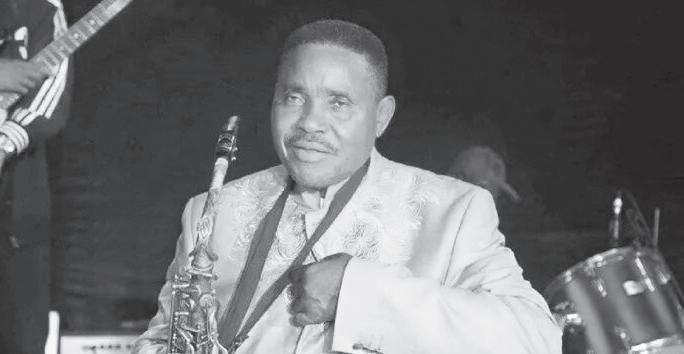
In the ‘80s, Verckys helped start bands of the younger generation including Langa Langa Stars, Victoria Eleison, and AntiChoc. He opened a record pressing plant in Kinshasa in 1984, but pirate cassettes and the country’s crashing economy had already broken vinyl’s marketplace dominance, rendering the enterprise a failure. Verckys laid the groundwork for an ultimately unsuccessful career in politics in the early ‘90s when it briefly appeared as if democracy might take root in CongoKinshasa.
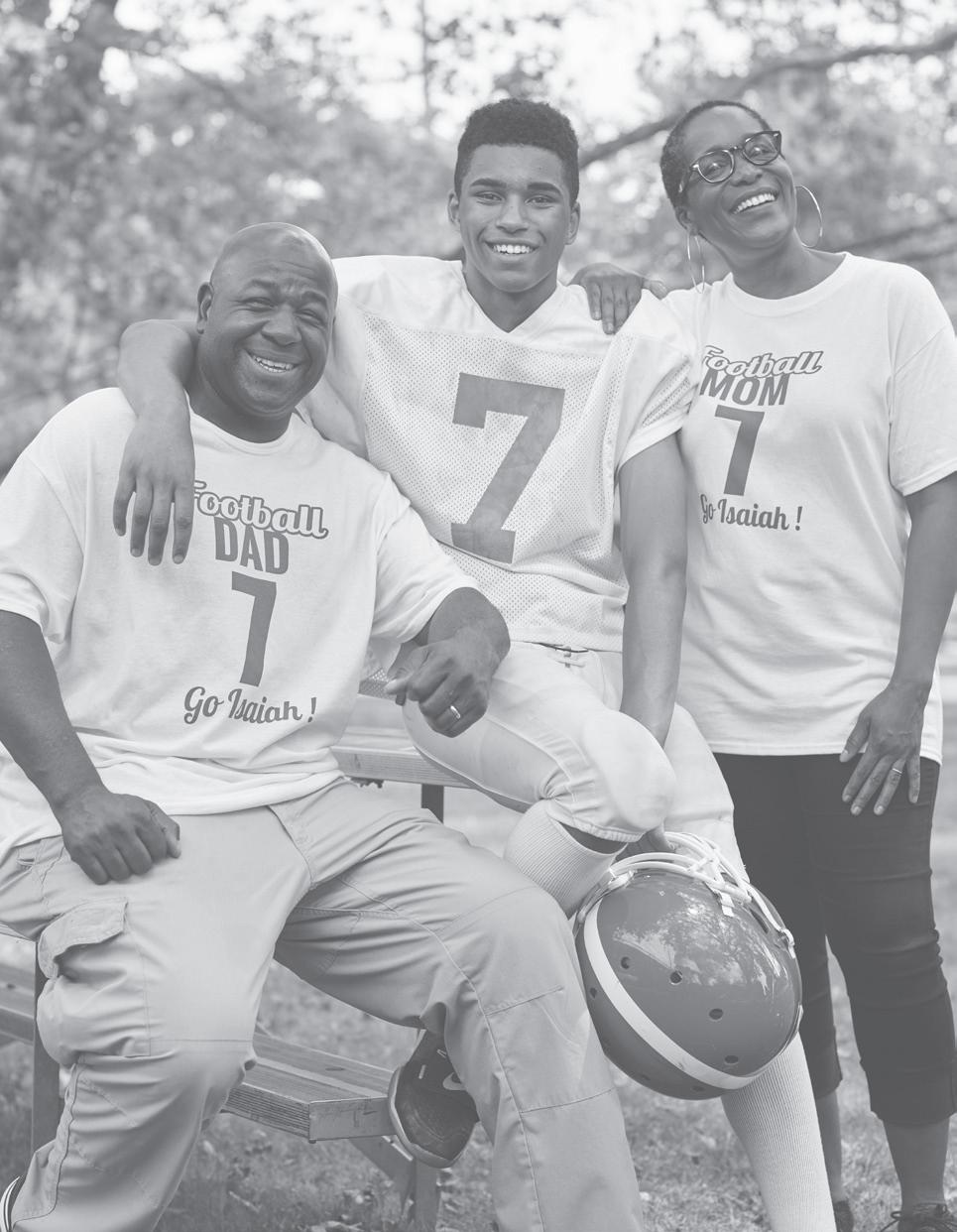
He continued to operate his recording studio, although most established musicians had left the devastated
country. Verckys was an enormously talented musician who, as a side man and leader, made substantial contributions the Congolese rumba. Nevertheless, Verckys’s business ventures overshadowed his musical offerings, his methods often subject to gossip and accusation. Some credited his rapid rise to the fruits of contraband trafficking, a charge he always denied. Others claim that the groups he started were often built from the Verckys-induced wreckage of established bands. Although he ranks along with Franco and Tabu Ley as one of the music’s leading entrepreneurs, he remains a controversial figure.
- The African Community Newspaper www.mshale.com Oct. 31-Nov. 6, 2022 Issue 546 Mshale 10
His first football season, Isaiah told us, ‘Wear a jersey with my name on it. I want everyone to know you’re here for me.’ Darnell and Denna, adopted 16-year-old Isaiah YOU CAN’T IMAGINE THE REWARD LEARN ABOUT ADOPTING A TEEN ADOPT US KIDS .ORG
Congolese Rhumba icon Verckys Kiamuangana Mateta Georges passed away Oct. 13 in Kinshasa at age 78.
Photo: Courtesy Jumuiya News
Unite to Fuel Change
We live in a world where divisions and poverty affect everyone but when we unite as changemakers we can create a community where all people thrive.
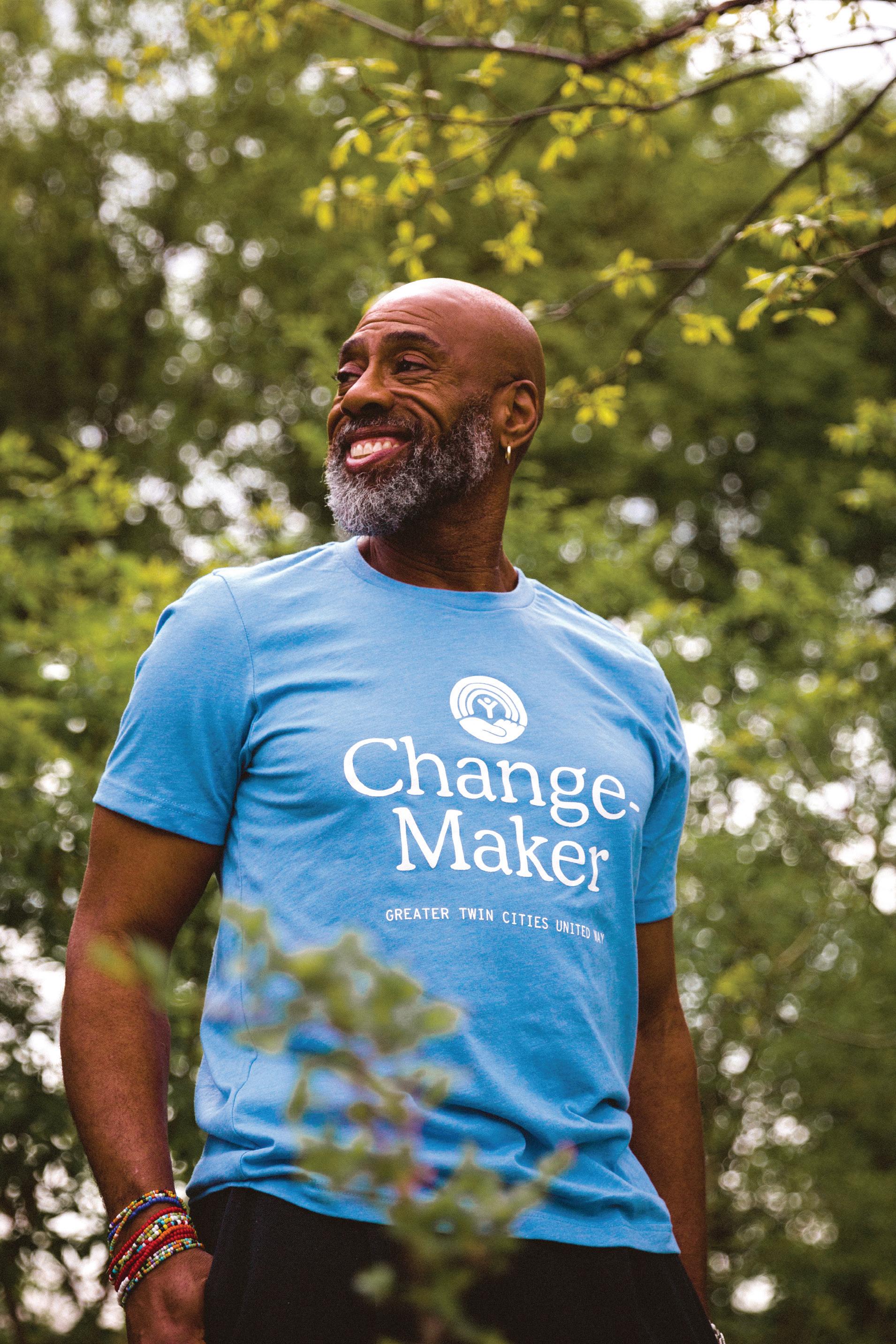
- The African Community Newspaper www.mshale.com Oct. 31-Nov. 6, 2022 Issue 546 Mshale 11
JOIN THE MOVEMENT VISIT GTCUW.ORG TO LEARN MORE









- The African Community Newspaper www.mshale.com Oct. 31-Nov. 6, 2022 Issue 546 Mshale 12 You Fair Housing A Better Community The solution to housing discrimination starts with you. If you have been trying to buy or rent a house or apartment and you believe your rights have been violated, contact HUD or your local fair housing center. The Fair Housing Act prohibits housing discrimination because of race, color, sex, religion, national origin, familial status or disability. + Fair Housing Is Your Right. Use It. Visit www.hud.gov/fairhousing or call the HUD Hotline 1-800-669-9777 (English/Español) 1-800-927-9275 (TTY) A public service message from the U.S. Department of Housing and Urban Development in partnership with the National Fair Housing Alliance. The federal Fair Housing Act prohibits discrimination because of race, color, religion, national origin, sex, familial status or disability. For more information, visit www.hud.gov/fairhousing. SCAN HERE FOR MORE INFO


























 By Adelle M. Banks Religion News Service
By Adelle M. Banks Religion News Service










